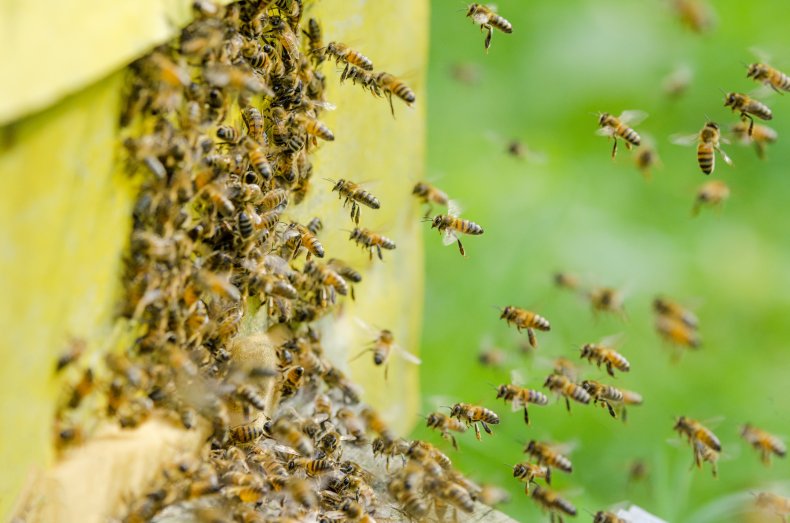Texas Bee Attack Victim Dies After Getting Covered in 'Very Aggressive,' 'Killer' Insects
The wife of a man who was killed in a Texas bee attack has described how the "killer" swarm covered her husband's head and back.
Thomas Hicks, 70, died after hundreds of bees attacked him while he mowed his lawn in Stephens County on Monday, KTXS reported.
Hicks was "severely" stung and went into cardiac arrest, Breckenridge Fire Department chief Calvin Chaney said in a statement. He told KTXS it is believed the sound of the mower upset the bees. It was unclear what type of bee attacked Hicks.
Thomas Hicks' wife, identified only as Zoni, told BigCountryHomepage she went grocery shopping when her husband started mowing their lawn.
Zoni said Hicks promised her he wouldn't go near the back area of their yard as there were bees there. When she got home, he was covered in bees.
"I mean you couldn't even see his back and his whole head he was just covered in killer bees" she said.
Zoni performed CPR on her husband after calling 911 then waited for responders to arrive.
"When they got here they worked on him for over an hour and they realized that they couldn't bring him back so I had to let him go," she said.
Chaney said in a statement emergency responders at the scene were "met with very aggressive bee activity" and entered the home through a "swarm of bees."
Log into Facebook to start sharing and connecting with your friends, family, and people you know.
To help Zoni, one of the firefighters removed their protective gear and gave it to her, before she was taken to a friend's house.
Beekeeper Joey Venekamp, who attended the scene, discovered a number of beehives with around 60,000 bees inside a tree at the property, which he removed.
Venekamp told BigCountryHomepage the bees likely turned aggressive because the hive was at a particular stage in its cycle. There were around four or five queen cells inside the hive, he said.
"Once one of them stings it's going to let off a pheromone and that's like a red flag to the other ones... best thing to do is take cover," said Venekamp.
Chaney said medics "did everything they could to make this a positive outcome but multiple issues turned this into a tragedy with one person not surviving the attack."
He said: "Please keep this family in your thoughts and prayers during this traumatic and sad day.
"First responders were faced with the daunting task of patient care and treatment during the attack and remained professional through the event."


